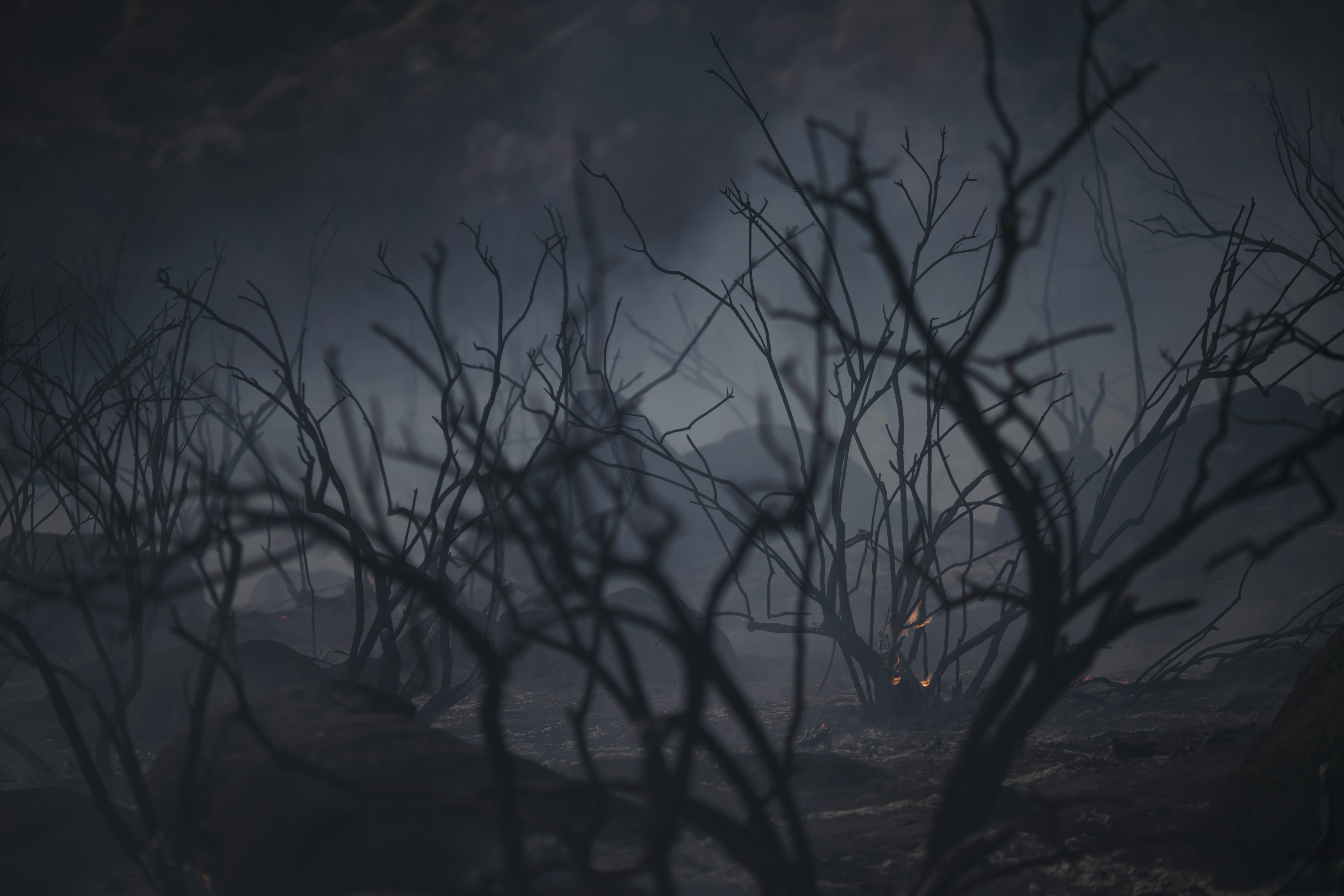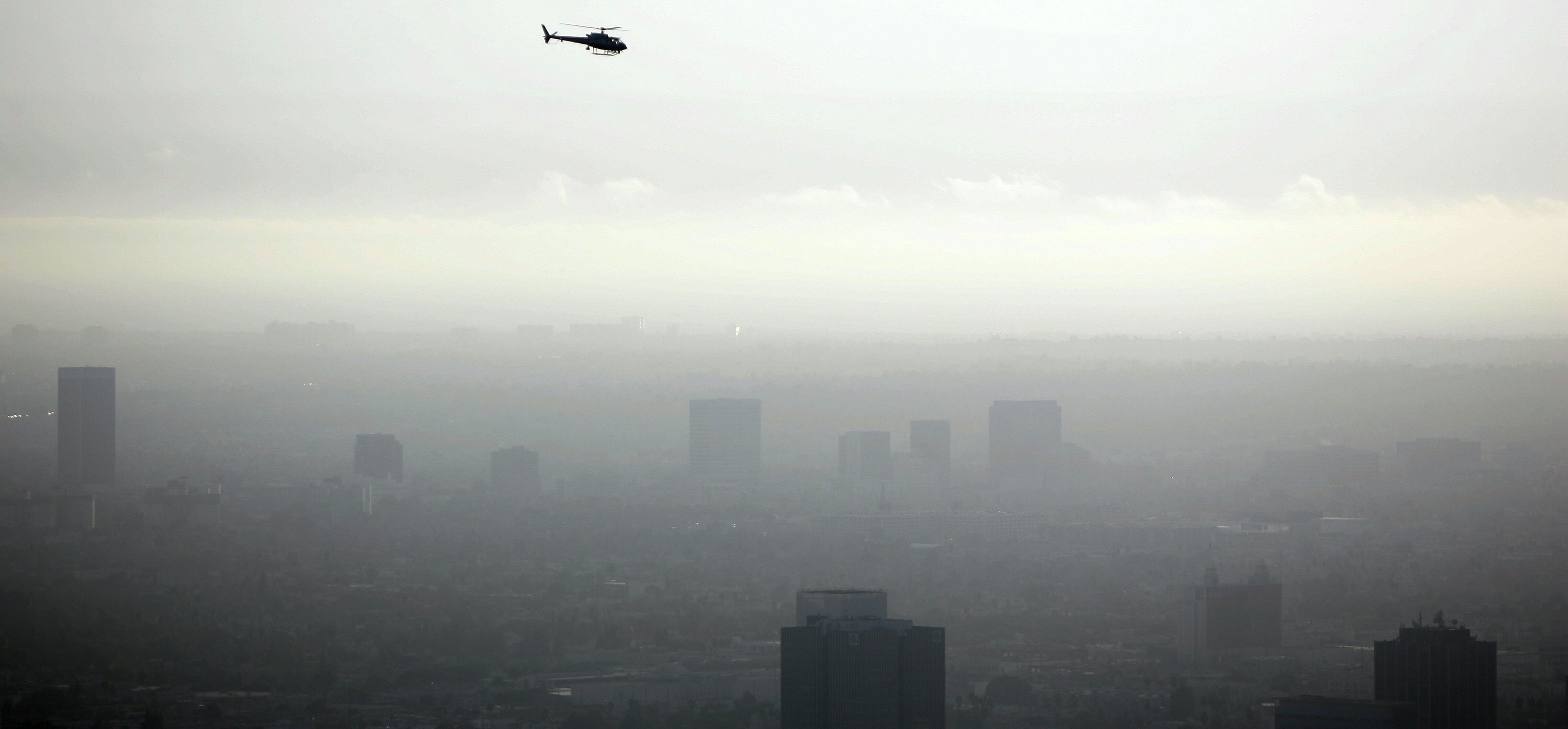
Nobody likes smog. Aerosol pollution, a mucky particulate cocktail of soot, dust, chemical fumes, and other compounds that linger in the atmosphere, is a worldwide problem. It’s unsightly, triggers environmental harms like acid rain, and is terrible for the health of humans and wildlife alike. Scientists and environmental advocates generally agree: We want cleaner air. But a new study suggests we should be careful about what we wish for, or at least mindful of the route we take to get there.
Reducing aerosol pollution, without simultaneously cutting back on greenhouse gas emissions, could lead to more and worse wildfires across the Northern Hemisphere, according to research published May 29 in the journal Science Advances. Using an intricate climate model, the study researchers found that imposing strict air quality standards, while continuing to pump out carbon dioxide and methane, could significantly boost boreal fire activity in Canada, Russia, Alaska, and parts of Europe. And, in fact, reductions in aerosol pollution could end up being a bigger driver of these northern fires than a continued increase in greenhouse gasses.
“Cleaning up the air, which is something we all want to do, will accelerate global warming and also impact wildfires unless we also reduce emissions of greenhouse gasses like methane and carbon dioxide,” said Robert Allen, lead study researcher and a climatologist at the University of California, Riverside, in a press release.
Greenhouse gas emissions are already making wildfires worse, worldwide. As we burn fossil fuels, warming the planet and spurring more severe and frequent heatwaves and droughts, it’s no surprise that forest fires are becoming more extreme too. But aerosol pollution has a counterintuitive, mitigating effect on wildfires, per this study and past research.

Aerosols in the atmosphere can reflect sunlight and heat away from Earth, boost cloud formation, and ultimately minimize the effects of climate change. Aerosols don’t eliminate the planetary effects of greenhouse gas emissions, but they can cloak them. When aerosols are taken out of the system, the true cost of all that atmospheric carbon dioxide emerges and warming speeds up. Then, complex plant physiology and soil moisture factors can lead to additionally amplified wildfire risks, per the study.
The researchers compared two climate scenarios where all variables were kept identical except for aerosol emissions. The scenarios both assumed minimal reductions in greenhouse gas emissions and continuing climate change. But in one, Allen and his colleagues introduced the implementation of strong air quality controls. In the other, it was business as usual. They found that cutting aerosols led to about 50% more warming than greenhouse gas emissions alone, and about double the increase in fire activity boreal forests.
The outsized effect on wildfires primarily comes down to soil moisture and photosynthesis. WIthout aerosols blocking and dispersing it, more solar radiation reaches Earth. This leads to more evaporation from plants’ leaves as they turn sunlight into energy, and more water being drawn out of the ground. Drier ground conditions ultimately lead to more fire activity.
Yet there’s a simple way to stop this cycle, and it doesn’t mean we have to learn to love smog. Instead, we could tackle greenhouse gas emissions at the same time as aerosol pollution. Reducing fossil fuel consumption does both: minimizing particulate pollutants in the air and, of course, slowing warming.
And methane, a particularly potent greenhouse gas up to 80 times as harmful as carbon dioxide, would be an ideal target for climate policy, Allen noted. “The warming you’d get from reducing aerosols could be offset by reducing enough methane,” he said. “There is a narrow window of time to make this happen and avoid the worst projected climate impacts.”







